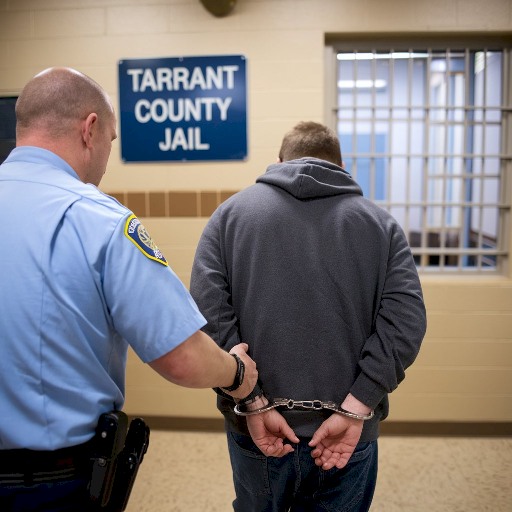Arrest and Booking: The Tarrant County Process
When someone you know is arrested in Tarrant County, Texas, the uncertainty and stress hit immediately. But after the initial shock comes the reality of a slow, bureaucratic, and often dehumanizing process. In Tarrant County, this process starts with jail booking—a system that can stretch into hours of waiting depending on the volume of detainees. For those on the outside, getting someone out of jail often hinges on securing bail, but before we even get there, let’s break down what actually happens after an arrest.
What Is the Booking Process in Tarrant County?
The booking process is the formal transition from arrest to detention. In Tarrant County, individuals arrested are typically taken to the Tarrant County Jail for processing. The size and operations of this facility mean that booking can often take an extended period of time, particularly during peak hours or weekends. For those arrested, this means being held in a temporary cell while the various bureaucratic steps slowly unfold.
Steps in the Tarrant County Jail Booking Process
Here’s what the booking process typically looks like in Tarrant County:
- Health and History Screening: To reduce the risk of illness spreading within the Tarrant County Jail, detainees are asked about their health conditions, tattoos, and any potential gang affiliations. In some cases, blood tests are conducted to identify potential health concerns.
- Full Body Search: One of the more invasive steps, detainees may be required to undress and submit to a full body search. This is a standard procedure aimed at ensuring no contraband is brought into the jail, but it’s a step that many find deeply humiliating and invasive.
- Fingerprints and Mugshots: Mugshots are taken, and fingerprints are entered into a national database. The purpose is both identification and establishing the detainee’s condition at the time of arrest—particularly important if there are later claims of mistreatment.
- Record Entry: The detainee’s name, offense, and other personal details are recorded in the Tarrant County system. If the detainee is eligible for bail, they may be able to make that call at this point, initiating the next step toward possible release.
- Warrant Check: A final check is done to ensure the detainee isn’t wanted in other jurisdictions. If additional warrants are found, posting bail for the current charge won’t lead to release—they’ll be held until those other issues are addressed.
- Turning Over Possessions: Any personal items, such as wallets and cell phones, are confiscated and kept by the jailer. The detainee won’t have access to these items while incarcerated, further contributing to the feeling of isolation.
- Initial Inspection: Right after arrest, officers conduct a quick search for weapons, drugs, or other illegal items. The goal here is to ensure the detainee isn’t carrying anything that could pose a danger to themselves or others while in custody.
The Waiting Game: how long does it take to get booked in jail?
In Tarrant County, booking is far from an efficient process. On a good day, it might take around two to three hours, but during weekends, holidays, or other peak times, it can stretch to 12 hours or more. During this time, detainees are essentially in limbo—waiting in holding cells without the ability to take meaningful steps toward release until the booking process is complete.
Bail: A Path Out of Tarrant County Jail, But Not Always a Solution
Once booking is complete, the focus shifts to bail—a system that, in theory, allows the accused to await trial outside of jail. In Tarrant County, bail amounts are typically set by judges using guidelines that consider the severity of the alleged offense, the defendant’s criminal history, and their ties to the community. But, the system is inherently inequitable: those who can afford to pay bail are released, while those who cannot are left to sit in jail, sometimes for weeks or even months, regardless of their guilt or innocence.
For those who can afford bail, it’s a way out—at least temporarily. The bail system is supposed to incentivize defendants to return for their trial, with the promise that their money will be returned if they comply. But for many in Tarrant County, bail is more like a barrier. Those who cannot afford it remain incarcerated, facing disruptions to their employment, family responsibilities, and mental health.


